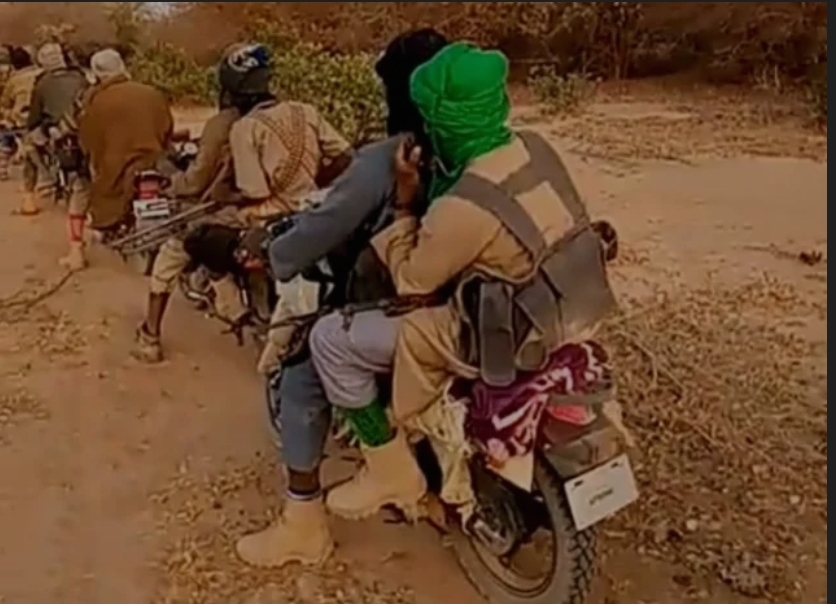For more than a decade, civilians in Nigeria have faced multiple security threats and risk of atrocities as result of attacks, kidnappings and extortion by various non-state armed groups.
Olayomi Koiki

ZAMFARA, Nigeria – Seven security operatives, making up three soldiers and four policemen have been killed by terrorists in the early hours of Thursday on the highway along Gusau to Tsafe- Local Government Area of Zamfara State, North-West Nigeria, police said.
Zamfara State Commissioner of Police Muhammad Dalijan confirmed this while Fielding questions from Journalists shortly after the state government provided operational patrol vehicles for the sixteen divisional offices in the state.
CP Dalijan explained that the terrorists had wanted to enter the Setraco construction company camp working along the Gusau- Funtua highway when they heard the information and quickly sent their men, which the terrorists laid ambush on them and engaged in a gun battle with the terrorists. Unfortunately, they lost four policemen and three soldiers.
The Zamfara State Police boss reiterated the commitment of the Nigerian police force to reduce the casualties of its personnel who are waging the ongoing war against banditry and other crimes in the State through training.
– Insecurity and violence in Nigeria –
For more than a decade, civilians in Nigeria have faced multiple security threats and risk of atrocities as result of attacks, kidnappings and extortion by various non-state armed groups.
Since the start of 2024 civilians have faced intensified violence across Nigeria, and near-daily attacks by armed groups resulting in kidnappings and other abuses against civilians.
Armed groups and gangs, including so-called “bandits,” have – for many years – perpetrated widespread atrocities, including murder, rape, kidnapping, organized cattle-rustling and plunder. Armed herdsmen are also destroying vast swaths of farmland, prompting many farmers to abandon their land out of fear of attack.
In August, the Director General of the World Trade Organisation (WTO), Ngozi Okonjo-Iweala, said insecurity in Nigeria is weaponised by politicians for political and selfish reasons.
A Nigerian soldier, Suleiman S., also alleged that the government’s practice of paying ransoms to terrorists – dubbed as bandits in the country was hindering the military’s ability to effectively combat them.
He urged the public to redirect their blame from the Nigerian Army to the government, emphasising that soldiers are constrained by orders and cannot take independent action.
The soldier said the military has the capability to eradicate bandits, particularly in hotspots like Zamfara State forest within a week if given the necessary orders.
He expressed frustration that the military’s potential is being wasted due to a lack of direction from leadership, whom he accused of profiting from the ongoing crisis.
He cited the assassination of a Sokoto State monarch, Alhaji Isa Muhammad Bawa as an example of a coordinated plan by certain individuals or groups to perpetuate insecurity.
